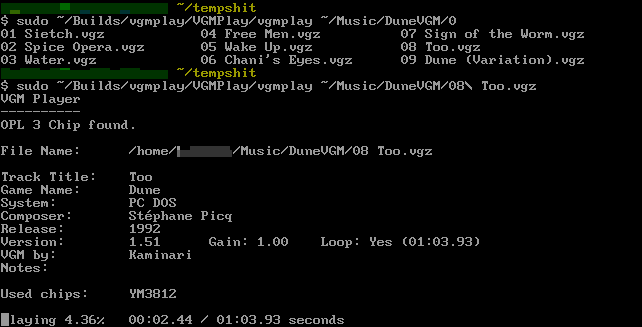First post, by DracoNihil
- Rank
- Oldbie
I have a cheap chinese clone PCI-e CMI8738 soundcard, the OPL3 actually functions and ALSA uses it for MIDI output (when FM timbres are loaded into memory beforehand), as far as I can tell it's running in OPL3 mode and not OPL2 mode.
Can programs directly access the registers even though ALSA is using the OPL3 for MIDI? Is it possible for me to switch the thing into "OPL2" mode? Can I use "passthrough" code so things like DosBOX, adplug, etc use the CMI's OPL3 chip rather than a software emulation?
“I am the dragon without a name…”
― Κυνικός Δράκων
